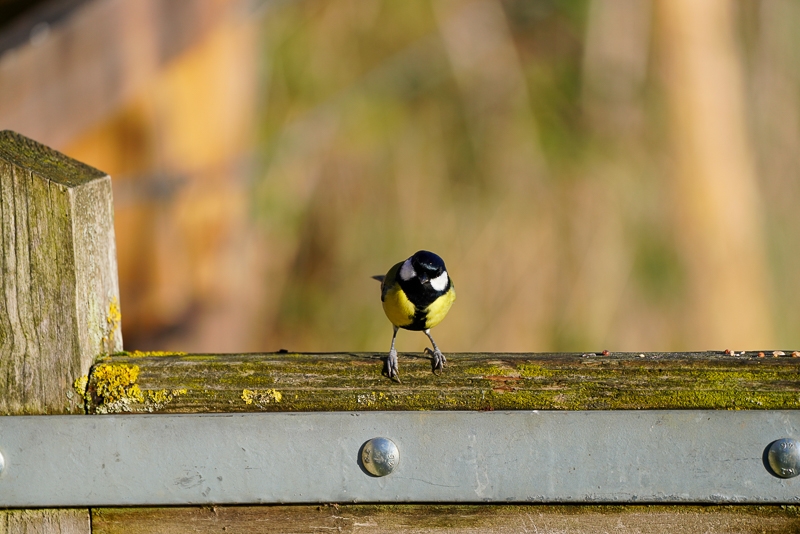IS IT BAD TO ANTHROPOMORPHISE?

I apologise to spiders for breaking their webs. I greet trees, call them sweetheart. I thank fungi for revealing themselves to me. I ask bushes to excuse me when I push past their branches. I say good morning to squirrels and blue tits.
When I go to the woods, I wonder who I'm going to see not what I'm going to see. Animals or plants are never an "it" unless grammar allows no alternative; even then, I often bend the rules. Every living being is a he or a she or a they - randomly, depending on what I feel and not my ability to correctly identify their sex (my willow tree is technically a male, but I know her as a she). When I wonder how a bramble reroots into the ground, I wonder how they do it - and I ask.
WHAT IS ANTHROPOMORPHISM?
Anthropomorphism is the interpretation of nonhuman beings, things, or events in terms of human characteristics. Everything I've described above is anthropomorphising.
Contrary to some interpretations, anthropomorphism isn't tied to animal rights activism. My anthropomorphism, like that of many who care about the natural world, is broad and complex, and can't be distilled as believing that all plants and animals have thoughts and feelings that they experience like ours. It's more akin to a recognition of and respect for the life of other beings and the importance and interconnectedness of the natural world.
It's a way to express gratitude.
WHAT'S THE PROBLEM WITH ANTHROPOMORPHISING?
Scientists limit anthropomorphism during their practice of science to help prevent them projecting human-centred understandings onto non-human (or more-than-human) subjects, and thereby help to keep their mind open when considering how other beings might experience their lives.
Purportedly it helps them to remain objective - although I'm not sure a scientist truly detached from affection for her subject matter is something that exists or that we'd want to exist.
Anthropomorphism gets a lot of heat in the scientific and scicomm (scientific communication) community. I've read my fair share of natural history books and dumping on anthropomorphism (or at least apologising profusely for engaging in it) is a recurring theme.
DO SCIENTISTS REALLY AVOID ANTHROPOMORPHISM?
No. Scientific writing and scientific ways of understanding are littered with examples of anthropomorphism - most of them relate the more-than-human world as a cut-throat and selfish place.

IS IT REALLY A PROBLEM?
I'm not a research scientist, so I can't speak to personal experience of whether anthropomorphising makes the practice of science more difficult or unreliable. When I look at academic articles or general musings on the topic, though, lots of them miss the mark.
Take this piece on anthropomorphism in science. Davies says that 'anthropomorphic thinking has misdirected biological enquiry' and gives the example of scientists assuming that microbes in their natural environment are in a constant war over space and nutrients.
The author notes that many scientific papers anthropomorphise the behaviour of microbes by ascribing them 'human militaristic means and ends'. Davies points out that billions of microbes of thousands of species can live together in a single soil sample; there is no direct scientific evidence that the microbes behave in a militaristic way.
Davies agues that anthropomorphism has interfered and led to us filling in blanks that we didn't have enough understanding to fill, but I think perhaps the problem is the type of behaviour that we attributed. We could have anthropomorphised and assumed neutral or cooperative behaviour: it's not a given that humans are militaristic.
Perhaps the problem is how we view the world, rather than that we relate that view to the workings of the natural world.
The example is true of trees, too. For decades, Western science assumed that trees were in direct competition, and that all of their behaviour was guided by this fierce competition with neighbours. The wood was a battlefield.
This was the wrong type of anthropomorphism. The right kind of anthropomorphism would have been one where trees might help their neighbours, as Dr Suzanne Simard's research has shown.
Perhaps our problem isn't the tendency to anthropomorphise - arguably avoiding it altogether is impossible - but the tendency to ascribe to more-than-human subjects the worst traits of humanity.
Why do we always talk of battlefields, of survival, and of competition when we anthropomorphise and never of affection, of cooperation, of nurturing?
THE IMPORTANCE OF ANTHROPOMORPHISM
In Braiding Sweetgrass, Robin Wall Kimmerer notes that while science could be a source of and repository for knowledge, the scientific worldview is all too often an enemy of ecological compassion.
"It is important... to separate two ideas that are too often synonymous in the mind of the public: the practice of science and the scientific worldview that it feeds."
The scientific worldview is one "in which a culture uses the process of interpreting science in a cultural context that uses science and technology to reinforce reductionist, materialist economic and political agendas."
It's important to recognise the effects of a lack of ecological compassion. Viewing plants and animals only as an 'it', as objects, and pouring scorn on people who talk of them with love and care is an approach that makes it much easier to exploit the Earth's resources, promote waste, and disregard the importance of the natural world. It's easier to put profit over environment when the natural world consists of objects, not beings.
Thinking of the natural world with ecological compassion through anthropomorphism encourages you to stop and think before destroying a tree or ploughing a meadow. It gives cause for serious reflection before soaking a field with chemicals or boxing a river into a concrete channel. Such reflection gets in the way of materialistic economic "progress" and so is discouraged.
Don't forget that the scientific worldview helps corporations bent on trivialising the importance of the natural world, of breaking people's spiritual bond with the natural world, and of stamping out any compassion we may have for those we share this planet with.
Even if you believe that anthropomorphism poses a serious problem in scientific research, there's no real reason for bringing those ideas into wider society. When communicating popular science, particularly during a time when it's so important for people to reconnect with the natural world, it's not necessary to keep a clinical distance from your subject matter.
When you're writing about the love we give nature, and the love we receive back, the wonder that's all around us, the amazing interconnectedness of our planet, there's no real danger associated with anthropomorphism or related issues of semantics.
It may be true that scientists referring to other beings by affectionate names, viewing plants and animals as equals or teachers, or describing subjects in a way that ascribes them what we think of as human characteristics or tendencies impairs science's ability to gather reliable knowledge about the world around us. I don't necessarily agree, and many incredible scientists like Dr Suzanne Simard and Professor Robin Wall Kimmerer don't either.
It's definitely not true that there's any harm in communicating your care for the natural world in whatever way you see fit. Expressing love, gratitude, and connection is difficult and emotional, and scientific language doesn't hold much emotion.
Never let anybody make you feel like the way that you express your connection to the natural world is invalid. It's time we valued ecological compassion as a way for us to start to heal our broken connection to the planet we live on.
Share with your friends
Subscribe to learn more
Join me in exploring our natural world and cultural heritage as we learn how to protect and restore it. Get notified on my latest posts and a monthly newsletter on wider conversation topics for us to chat about.
Recent Posts
If you enjoyed this one, then you might like these too.